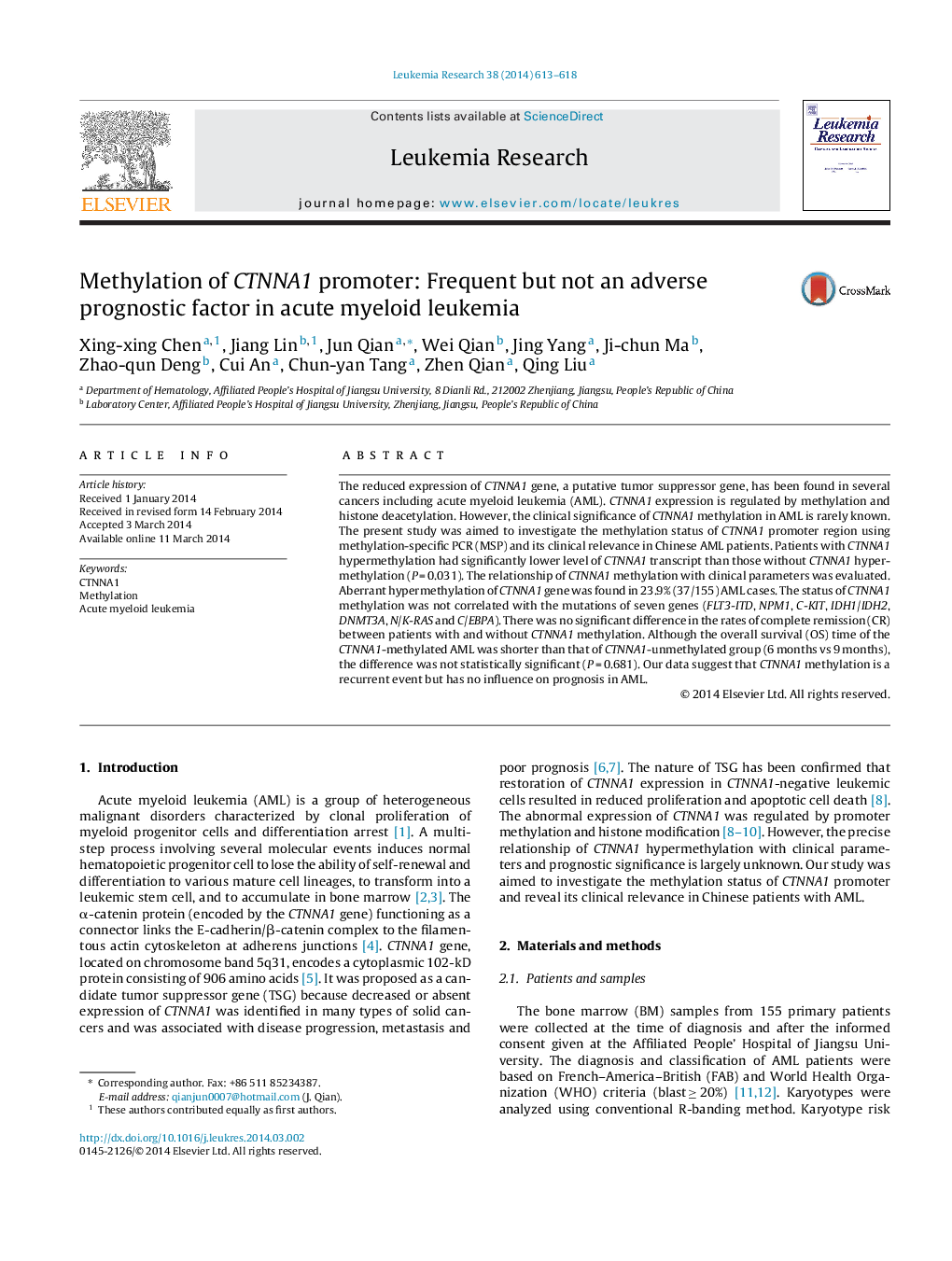| Article ID | Journal | Published Year | Pages | File Type |
|---|---|---|---|---|
| 2136574 | Leukemia Research | 2014 | 6 Pages |
The reduced expression of CTNNA1 gene, a putative tumor suppressor gene, has been found in several cancers including acute myeloid leukemia (AML). CTNNA1 expression is regulated by methylation and histone deacetylation. However, the clinical significance of CTNNA1 methylation in AML is rarely known. The present study was aimed to investigate the methylation status of CTNNA1 promoter region using methylation-specific PCR (MSP) and its clinical relevance in Chinese AML patients. Patients with CTNNA1 hypermethylation had significantly lower level of CTNNA1 transcript than those without CTNNA1 hypermethylation (P = 0.031). The relationship of CTNNA1 methylation with clinical parameters was evaluated. Aberrant hypermethylation of CTNNA1 gene was found in 23.9% (37/155) AML cases. The status of CTNNA1 methylation was not correlated with the mutations of seven genes (FLT3-ITD, NPM1, C-KIT, IDH1/IDH2, DNMT3A, N/K-RAS and C/EBPA). There was no significant difference in the rates of complete remission (CR) between patients with and without CTNNA1 methylation. Although the overall survival (OS) time of the CTNNA1-methylated AML was shorter than that of CTNNA1-unmethylated group (6 months vs 9 months), the difference was not statistically significant (P = 0.681). Our data suggest that CTNNA1 methylation is a recurrent event but has no influence on prognosis in AML.
